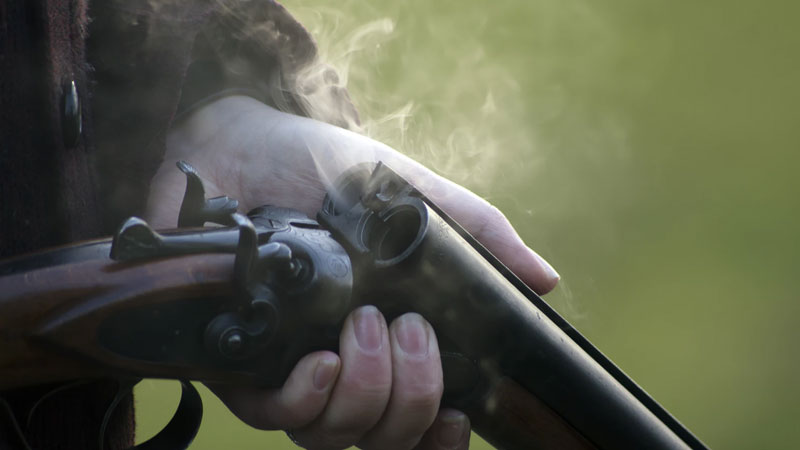10 Things That Could Result in You Losing Your Firearm Rights
Understanding which persons are prohibited from possessing a firearm is essential. If you’ve lost your gun rights in the past, Findley & Rogers may be able to help you get your gun rights restored. Many people don’t know this is an option for them, and it’s a passion of ours to help ordinary folks take back these rights whenever possible.
Today in the blog, we’re looking at 10 issues and crimes that prohibit gun ownership. Let’s get started!
1. Drug Offenses or Drug Addiction
Recreational drug use, both legal and illegal, is widespread throughout Washington State. In addition to the well-known heroin crisis, the abuse of prescription drugs, psychedelics, and other narcotics is also a problem.
Because of the severity of this issue, those with drug addiction or offenses are classified as persons prohibited from possessing a firearm. The federal Brady Handgun Violence Prevention Act of 1993 prevents you from possessing a gun if you are:
- Addicted to drugs
- Using drugs unlawfully
Additionally, Washington state law specifically classifies almost all drug convictions, such as dealing, as felonies that prohibit you from possessing a gun.
The moral of the story is simple: If you want to keep your gun or get your gun rights restored, stay clean. Guns and drugs do not mix.
2. Any Felony Criminal Conviction
Felonies are crimes that prohibit gun ownership. If you are convicted of any felony (Class A, B, or C), you automatically lose your right to possess a firearm. But this will be the least of your troubles, as a felony conviction usually means you’ll also be going to prison.
One point to note: People often think of felonies as big, dramatic crimes like murder, but some felonies are a lot more subtle. For example, forging a prescription, unlawful use of food stamps, most forms of theft, and trespassing on somebody’s computer are all felonies.
3. Misdemeanor Domestic Violence Conviction
Unsurprisingly, staying out of trouble is a top priority for gun rights restoration. Almost all misdemeanor DV crimes involve losing your gun rights in one way or another. Misdemeanor domestic violence crimes that result in a loss of rights include:
- Assault in the fourth degree
- Stalking
- Violation of a court order
- Trespassing
- Coercion
- Reckless endangerment
- Harassment
Know that domestic violence laws in Washington also apply to roommates, even if they’re not technically family members or domestic partners. This is important because many roommate relationships eventually go sour, which creates a dangerous situation in which both individuals are at risk of committing a domestic violence crime against the other—and thus becoming classified as a person prohibited from possessing a firearm.
4. An Extreme Risk Protection Order
Some person prohibited from possessing a firearm may be under an “Extreme Risk Protection Order.” An Extreme Risk Protection Order is a type of restraining order that lets a partner, family member, or law enforcement agency petition the court to take away an individual’s right to possess a firearm.
As the name suggests, this typically occurs in situations where a partner or family member of an individual (or a law enforcement officer) credibly believes that person to be at extreme risk to themselves or others. This might occur, for example, if an individual has lost their job or a loved one and is severely depressed. In these cases, having your gun rights restored is unlikely, as the only way to do so would be to terminate the protection order early. Most courts are unwilling to do this, but fortunately, extreme risk protection orders are generally only in place for one year, providing the absence of any crimes that prohibit gun ownership.
5. Mental Health Issues
There are three types of mental health issues that can lead to you being classified as a person prohibited from possessing a firearm:
- Involuntary commitment to a mental healthcare facility
- Being found not guilty of a crime by reason of insanity
- Mental incapacitation or severe mental disability
The reason here is that somebody who is struggling with mental illness (or who is mentally disabled) cannot be presumed to possess the necessary judgment to responsibly own, handle, and control a firearm. Having your gun rights restored in these situations is also very unlikely as the federal government does not currently recognize the restoration of firearm rights following a mental health issue.
6. A “Serious Offense”
In Washington State, RCW 9.41.010 defines a lengthy list of crimes, designated as “serious offenses,” that prohibit gun ownership. That list includes:
- Any violent crime
- Felony drug offenses
- Child molestation in the second degree
- Incest against a child under the age of fourteen
- Indecent liberties (a type of sex offense)
- Leading an organized crime enterprise
- Promoting prostitution in the first degree
- Rape in the third degree
- A drive-by shooting
- Sexual exploitation
- Vehicular assault while intoxicated or while driving recklessly
- Vehicular homicide while intoxicated or while driving recklessly
- Any Class B felony offense with a finding of “sexual motivation”
- Any other felony with a deadly weapon
Not only will you be classified as a person prohibited from possessing a firearm if you are convicted of a serious offense, but you may also lose your rights before the trial begins. For those wondering how to get their gun rights back for a “serious offense,” please note that following your initial charge, you may not be allowed to possess firearms while free on bail pending trial, appeal, or sentencing.
7. Nonstandard Criminal Convictions
In some cases, being designated as a person prohibited from possessing a firearm occurs for nonstandard criminal convictions. For less serious crimes, first-time offenders are often given an alternative to jail, and the charges against them are dismissed (typically a year or two later) if the offender successfully stays out of trouble.
However, in Washington State, these alternative sentences often still count as a criminal “conviction.” Even if the charges are later dismissed, you are still “convicted” of that crime in the following scenarios:
- Probation
- Deferred sentences
- Suspended sentences
Additionally, if later on down the road you get your criminal conviction vacated (“expunged”), you will still need to learn how to get your gun rights back and have your gun rights restored.
This is a special area of state law. Generally speaking, when a criminal record is cleared, you can legally state that you were not convicted of that crime. But when it comes to gun rights, there is a different standard.
8. Gun Offenses
If you carry a firearm while committing a felony offense, that is a serious crime that prohibits gun ownership, and you will face heightened penalties as a result.
It is also against the law to concealed carry without a license or to carry a firearm with a concealed carry license from another state whose licenses Washington does not honor. How you get your gun rights back in these situations will depend on the type of charge you have been sentenced with.
9. Citizenship Status Issues
Noncitizen immigrants living in the U.S. as lawful permanent residents may possess a firearm, as may any legal immigrant with a valid alien firearm license. Undocumented immigrants are generally persons prohibited from possessing a firearm.
If you are a U.S. citizen and you renounce your U.S. citizenship, you forfeit your right to possess a gun while in the country. Having these gun rights restored can involve a multitude of steps, including applying for an alien firearm license if you obtain citizenship with another country or potentially attempting to reinstate your US citizenship.
10. Dishonorable Discharge from the Military
This one is a pretty rare circumstance, but it’s worth noting that you’re held to a higher standard when you’re in the military. A dishonorable discharge is a severe penalty, connoting gross misconduct, and therefore makes you qualify as a person prohibited from possessing a firearm in Washington state, even if you are not separately convicted of a criminal offense, though the two often go hand in hand. Currently, there are no good options for restoring firearm rights after a dishonorable discharge.
Let Findley & Rogers Help You Restore Your Firearm Rights
If you’ve lost your firearm rights and are wondering how to get your gun rights back, our experienced attorneys at Findley & Rogers may be able to help you get them back.
Contact us today for a free consultation. We’ll let you know your legal rights and options as a person prohibited from possessing a firearm. Give us a call today and start the journey towards having your gun rights restored.



